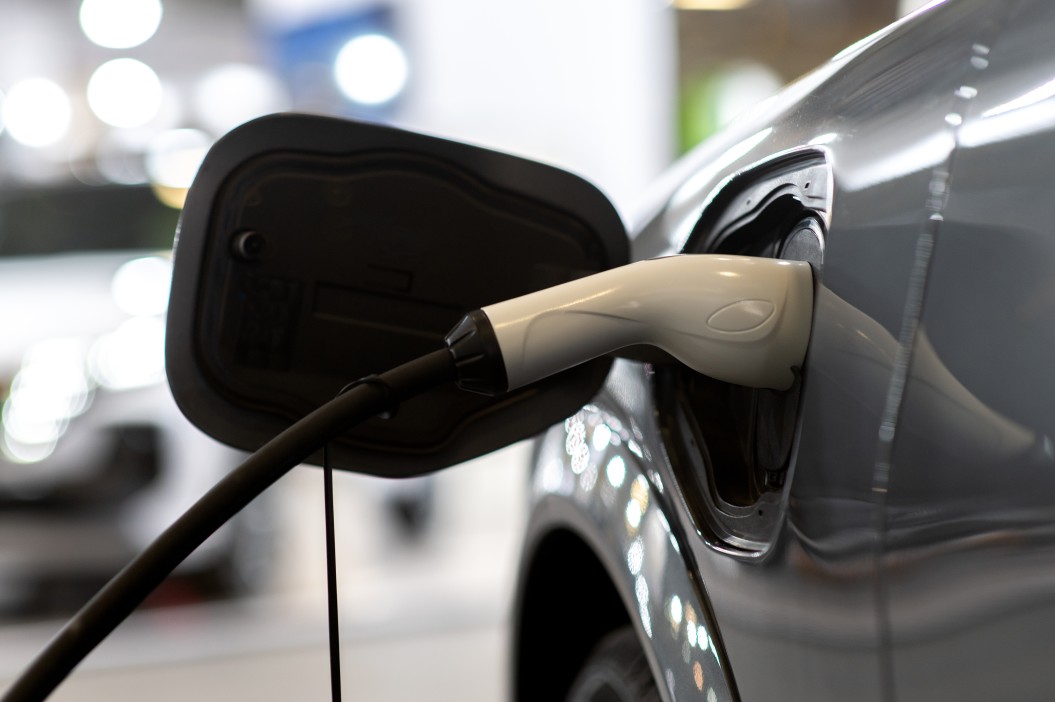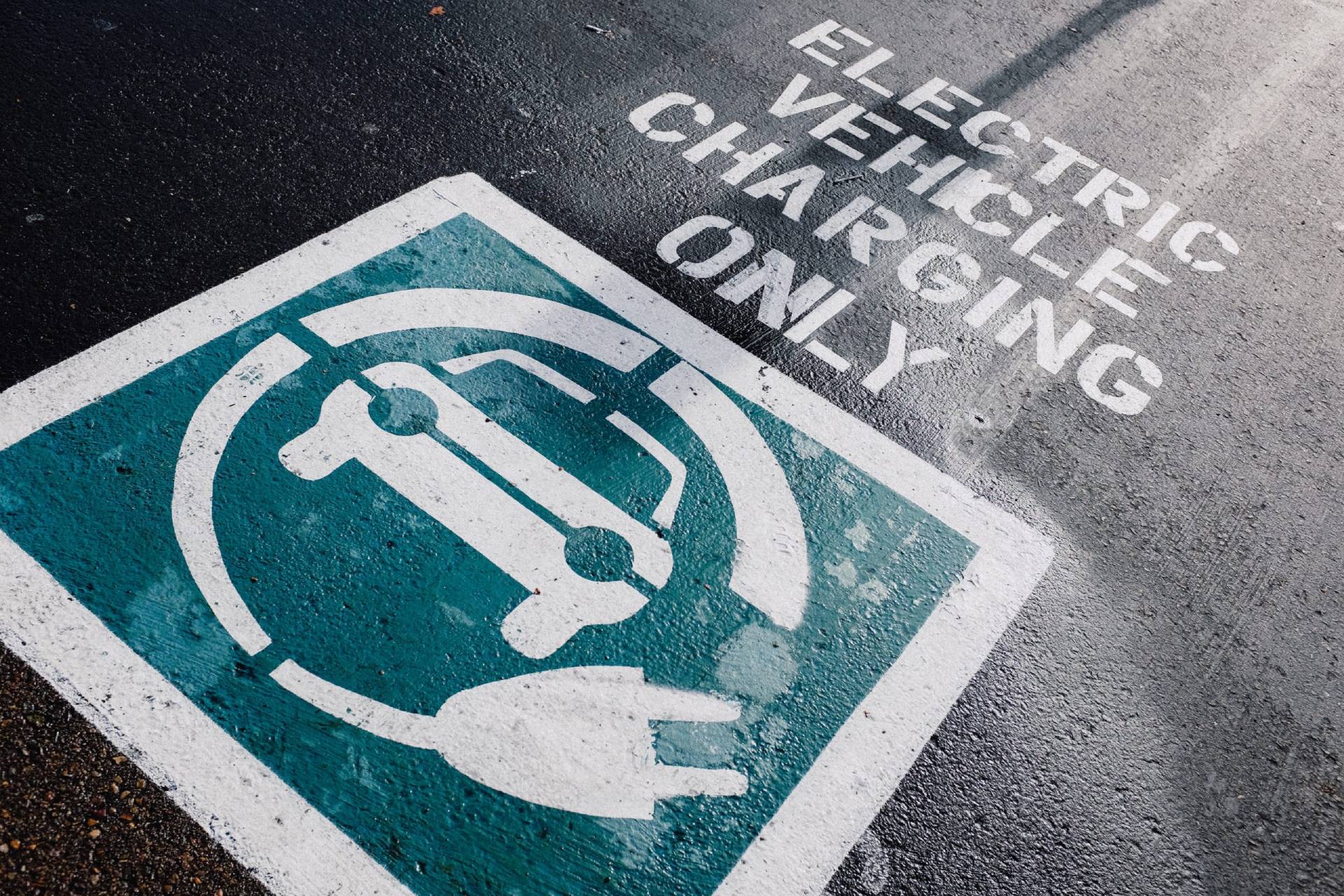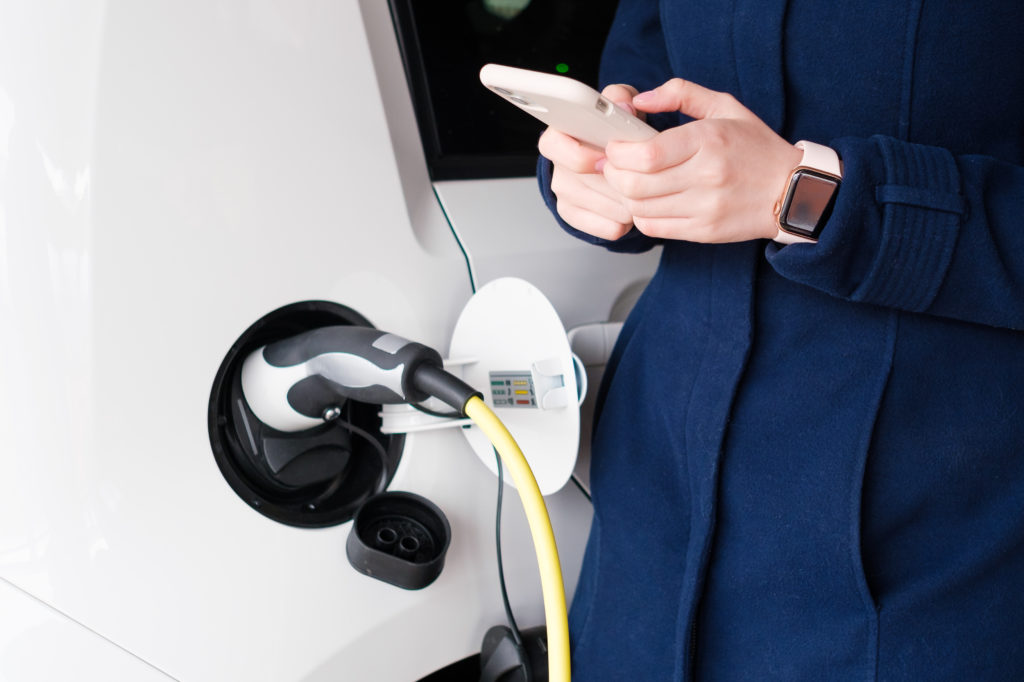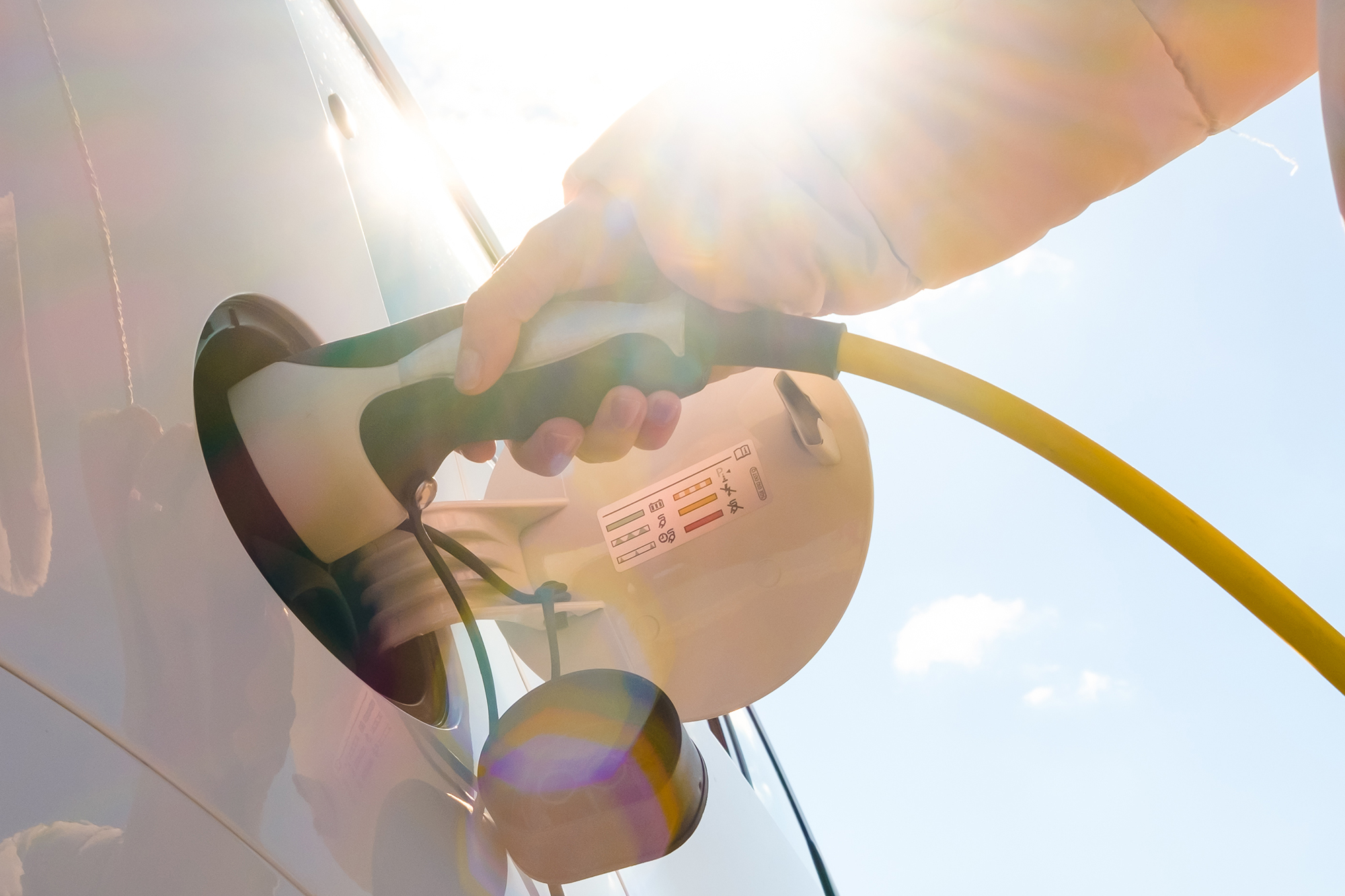The Future of Fuel: Electric Cars vs Gas Cars, and Fuel Coexistence
Most automobiles, in America and internationally, run on internal combustion engines. Gas or diesel goes in, tiny explosions power pistons and turn a crankshaft, the car moves forward, and the vehicle pumps carbon dioxide back out. That’s been how the automotive industry has designed vehicles for over a hundred years. Though there have been historical conversations surrounding electric cars vs. gas cars and the future of automation, the dominance of combustion engines and gas-powered vehicles was never in question.
In the past 5 years, that has changed. A growing chorus of environmental activists, business analysts, auto executives, politicians, and consumers predict a radical change in the development and manufacturing of automobiles: battery-powered electric vehicles. It’s becoming increasingly clear, even outside the automotive industry, that electric vehicles are the future of transportation.
Going electric isn’t simply an eco-friendly ambition to help curb climate change. Though it would contribute to a greener world, most industry analysts agree that going electric is simply a business reality. But if the industry seems poised to make a collective transition to renewable fuel resources and EV development, the role that combustion vehicles will play during the transition is uncertain.
We shouldn’t be talking about “Electric Cars vs. Gas Cars”
As experts with decades of experience installing, maintaining, and supporting businesses with EV charging, LilyPad EV LLC., Powered by Shields Harper & Co, has had a long time to watch the EV & EV charging industry develop. We’ve heard countless “industry insiders” talk about electric cars vs. gas cars and what to expect as the automotive industry and vehicle manufacturing change.
The reality is that changes to vehicle manufacturing won’t erase existing combustion engines or gas cars. Hundreds of millions are on the road and/or waiting to be sold, and they’re not just going to evaporate. We’re not facing a future of competition between electric cars vs. gas cars. We’re looking at a future of fuel coexistence: short-term & long-term.
So, let’s talk about that. How should we be reframing the “electric cars vs. gas cars” discourse? How will the reality of the EV market right now shape our future? More specifically: what is the future of fuel? Well, we’re glad you asked.
Installation and Consultation Experts For Any EV Project
LilyPad EV LLC., powered by Shields Harper & Co., is building the fueling network of the future. We have pioneered charging station planning and installation since 2009 and offer extensive electrical expertise with trusted trade partners. Our recent acquisition by SHC has only improved our ability to provide effective, well-thought-out solutions to meet your EV charging project expectations—no matter your industry.
We’ve worked with over 400 companies across 37 states and have installed charging stations at over 1000 locations nationwide. Our stations have charged EVs more than 2 million times, and we’ve recently been named Chargepoint’s Reseller of the Year. In fact, Keith Anderson, LilyPad EV Co-Founder and current VP of Business Development, was also named Chargepoint’s First Ever Salesperson of the Year!
As our award-winning team proves, we go above and beyond to provide our customers a dependable experience. Our services include comprehensive consultation for your EV charging needs, site surveying, project management, and professional EV charging station installation.
With this expertise, you can rest assured that our industry insight comes from decades of experience. We have been since the beginning of EV development and will continue to pioneer quality service and support in EV charging installation.
But with expertise comes the responsibility of exploring and explaining the changes in the EV charging industry. We’ve heard every variation of “electric cars vs gas cars is the future, and you need to transition ASAP,” but that’s simply not the case. There are things EVs can’t do yet, and there are transitions that EV batteries simply aren’t fit for. Discussing the future of fuel in terms other than fuel coexistence is ineffective and, frankly, misleading. Here’s why.
Current Limitations of EVs & Renewable Vehicles
Electric vehicles are currently a tiny fraction of the car market (roughly 2% of the American market). The US market remains dominated by internal combustion engines. But many more electric car models are on the way, and most manufacturers have committed to developing and selling solely electric vehicles by 2040. That means a hard pivot in vehicle manufacturing is just around the corner.
As a result, it’s important to have a frank conversation about where EV charging and the electric cars vs gas cars debate is currently. EVs simply don’t have the same kind of capabilities that combustion engine vehicles do right now. But that’s going to change.
Lack of Available Charging
The single biggest hurdle to an EV takeover is charging. Electric vehicle drivers have far fewer options for vehicle charging when away from home. Unlike gas cars, where you can find a gas station every other 3 blocks, public charging stations are fewer and further between. There’s also the added complication that the US’ current electrical grif infrastructure is ill-equipped for the needs of a rapidly growing EV sector. There will need to be significant upgrades to our power grid and a concerted investment in improving access to EV charging stations before our public charging shortage becomes a thing of the past.
Steps are already being taken to correct these issues, but these steps won’t make gas cars obsolete. The Work by LilyPad EV LLC, Shields Harper & Co., and Chargpoint aren’t going to get rid of traditional fuel cars. They will simply give electric cars parity in service opportunities with combustion vehicles.
Smaller Range
A natural part of EVs requiring regular charging and there being fewer available public charging solutions is that EVs cannot travel as far. This means that they are currently ill-equipped to service consumers as long-distance transportation. EVs remain great for tooling around town, running errands, or quick trips. For any inter-state travel or road trips, however, gas cars still make more sense.
There are continuing developments in electric vehicle technologies. This includes significant improvements to battery range making electric vehicles an increasingly attractive option for consumers, transportation services, and utility providers. For the foreseeable future, and likely well beyond that, however, the range of electric cars vs. gas cars limits their practicality for long-form travel.
Difficulty Transitioning Aviation and Shipping
Another hurdle to fully transitioning vehicles to electric power is the fact that gas use is likely not going to go away entirely even with the full transition of car fleets to electric cars vs gas cars. Instead, most alternative forms of transportation & travel will still require combustion engines, simply as a result of the complicated engineering requirements of transforming shipping and aviation into EV-driven industries.
Reducing emissions for cargo ships and planes isn’t as simple as sticking a huge battery in them. EV batteries need to be much larger and more complicated than traditional car batteries to accommodate how much raw electrical energy is necessary to operate electric cars vs gas cars. This will prove even more true (and difficult to engineer efficiently) with larger vehicles. Technology will, of course, improve with time and make this concern less pressing.
For the foreseeable future, however, this is one additional reason that combustion technology isn’t going anywhere.
Long-Term Investment
On the other hand, gas-powered cars are cheaper to buy than electric vehicles but that is changing as well with the economy of scale. It’s also quicker to fill up at the pump than it is to recharge, and the country is packed with gas stations while charging station infrastructure is still in its infancy.
But experts predict batteries will get cheaper, charging will get quicker, and chargers will become more readily available. The balance is going to shift eventually. When it does, it will reshape the landscape of electric cars vs gas cars and how we discuss vehicles.
We’re already starting to see that happen. Fluctuations in gas prices have made electric cars more attractive to consumers than ever, and with car prices on the rise, the progressive decrease in the cost of electric vehicles is making the transition is becoming easier and easier to picture. But that is a ways off.
As a result, businesses and private consumers are still left juggling the reality of paying for and servicing EV charging stations and EVs. While there are a variety of federal EV charging station grants and tax incentives, they’re not all easy to access or understand. That’s where EV experts, like the team at LilyPad EV, comes in.
Legacy Vehicles
Something less frequently talked about is the fact there are a variety of old cars and legacy vehicles still on the road and being acquired by collectors and normal consumers. People like old cars, and who can blame them? These vehicles will likely be nearly impossible to retrofit, meaning they’re not going anywhere anytime soon and will need petroleum to operate.
Sure, this is more of a luxury purchase that likely won’t wildly dictate the direction and evolution of electric cars vs. gas cars. However, it speaks to the fact that independent of old muscle cars and vintage vehicles, combustion engine cars are still around and are here to stay. Fuel depots, gas stations, and automotive service providers will need—and want—to be able to service those drivers.
Development of EV: Electric Cars vs. Gas Cars
The world has changed. Electric Transportation is now viable and increasingly popular. There are over half a million plug-in electric vehicles on the road in the US, and that number is increasing. Almost every car manufacturer now has plug-in electric vehicles available.
We’ve already covered some of the current limitations of electric cars and what that means for gas cars in the immediate future, but we wanted to highlight the current—and quite exciting—state of the marketplace.
NEVI
In November 2021, President Biden signed the bipartisan Infrastructure Investment and Jobs Act (IIJA) into law, which commits to investing $5 billion in electric vehicle (EV) charging infrastructure.
The IIJA creates the National Electric Vehicle Infrastructure (NEVI) Formula Program, which will allocate funding to states and territories to support the deployment of EV charging stations along highway corridors. Federal officials have said they expect funds will start flowing to states in the coming months. Federal agencies are now developing regulations that will serve as the “rules of the road” for how states use these funds.
One of the major concerns about the development of the electric vehicle industry is that our grid can’t support an expansive charging infrastructure, and the lack of this infrastructure inhibits EV owners from commuting and driving like they would want to. This landmark piece of legislation is the first step to completely tackling these issues and providing the US with the modern power grid resources necessary to accomplish an EV transition.
Technology Developing
Interest in electric vehicle ownership is at an all-time high, and there are already nearly 2 million electric vehicles on the road across the country. Equally significant, reporting shows that many US automakers say that they plan to transition to producing at least 50% electric vehicles by the year 2030, with full transition to electric vehicles by 2040.
At the same time, there are continuing large developments in electric vehicle technologies. This includes significant improvements to battery range making electric vehicles an increasingly attractive option for consumers, transportation services, and utility providers.
As a result, it’s only a matter of time before electric cars become a significant customer base in every service marketplace.
What Is the Future of Fuel?
The rise of electric vehicles won’t automatically mean the end of the reign of the gas-powered car. Putting more battery-powered cars into circulation is only half of the equation. The next question is, what happens to all the combustion vehicles already on the road?
One possibility is that they might get replaced quite quickly with electric vehicles. That’s what environmental activists want for the sake of curbing climate change. Some proposed plans call for phasing out carbon-emitting vehicles within a decade—which would require very fast production of electric vehicles and a sudden withdrawal of combustion vehicles from roads.
That’s an ambitious target. But some versions of that fast timeline could be triggered by very high gas prices, bans, or restrictions on internal combustion vehicles. Many counties, states, cities, and urban agencies have already begun to discuss banning combustion engines entirely. At least hypothetically. It could also be motivated by consumer choices.
Electric Cars vs Gas Cars?
On the other hand, gas cars are also being innovated to make them more efficient, more environmentally friendly, and longer-lasting. Across the US market, vehicles are more efficient than they have ever been, and car manufacturers are touting this development as a first step in the efficiency innovations to come. So, though gas prices are fluctuating and vehicle pricing remains a concern, there are continuing innovations to combustion engines that are making them a more sustainable option long term.
This has reasonably complicated the conversation surrounding electric cars vs. gas cars, and whether to simply abandon the combustion engine.
The reality is that in the short term, both electric cars and gas cars are here to stay. And that may be true long-term, too. So, what does a world dominated by fuel coexistence look like? One vision is a world where American consumers take advantage of both vehicles. EV for local transportation and gasoline for long-distance travel.
Another vision sees us moving away from gas cars but retaining combustion engines for larger transportation vehicles.
What we’re trying to say is WE HAVE OPTIONS. There is no clear-cut future of fuel where gas cars disappear and EV eclipses the market. Instead, we’re looking at a hybrid marketplace for automobiles. One where convenience and need drive consumer trends. Gas isn’t going anywhere, but that doesn’t mean we shouldn’t work to make EVs as accessible, efficient, and affordable as possible. The future of fuel is coexistence.
Want to Learn More? Contact the Experts!
LilyPad EV has been here since the very beginning of the EV market. We offer optimized, expert, turnkey solutions to meet your EV charging needs and benefit your commercial or multi-family residential buildings. The knowledge we’ve gained from over a decade of installing EV charging stations makes us an unmatched advisor in all things EV charging.
Now more than ever, investing in the EV charging market can provide unbeatable value to your business. That’s why LilyPad EV, powered by Shields Harper & Co., is here to help guide you through the installation and financing process. No matter your needs, we’re the right team for the job.
You can learn more about Shields Harper & Co’s acquisition of LilyPad EV and how we’re working together to revolutionize clean energy infrastructure across the country.
Contact us today to learn more about how LilyPad EV’s commercial EV charging stations can provide a boost to your business.






